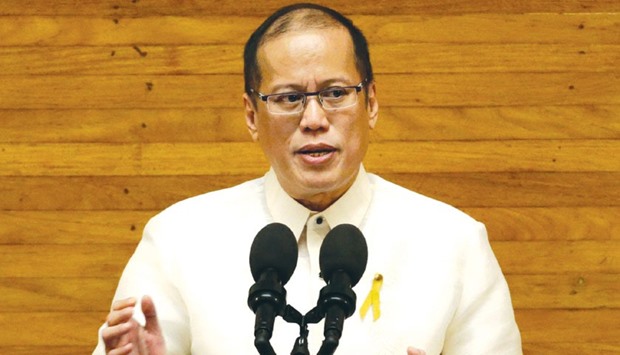
Aquino: focus on sea dispute
President Benigno Aquino will lead other Association of Southeast Asian Nations (Asean) heads of state in bringing forth the issue of maritime security, particularly the disputes at the West Philippines Sea (South China Sea), during their meeting with US President Barack Obama this week, according to a Malacanang official.
Communications Secretary Herminio Coloma Jr, in an interview over state-run Radyo ng Bayan, yesterday said it has been agreed during the Asean-US Summit last November that Obama shall hold a dialogue with Asean leaders on their maritime concerns.
“Maritime security has emerged as a vital concern to Asean. The goal of achieving Asean economic integration through the Asean economic community, as well as the US initiative on establishing a Trans-Pacific Partnership (TPP) to promote free trade in the Asia Pacific region may be enhanced through more vigorous trades that, in turn, must be assured by freedom of navigation in the main navigational routes of global trade and commerce, including the South China Sea,” Coloma added.
Quoting the Department of Foreign Affairs, he said Aquino will attend the Asean-US Leaders’ Summit in Sunnylands, California, from February 15-16 “to further boost and strengthen strategic partnerships” among the countries involved.
Besides maritime security, Coloma said the summit may also tackle political and security issues, “transnational challenges” and the continuing threat of terrorism.
“The two-day summit will be informal so that the leaders of Asean can freely express their sentiments and concerns that are of import,” he added.
Coloma said Aquino will likely lead his Asean counterparts during the dialogue with President Obama since he has been so passionate about the sea dispute with China.
“President Aquino has always represented the Philippines’ position on the importance of ensuring freedom of navigation and overflight, as well as adherence to Unclos (UN Convention on the Law of the Sea) and international law,” he added.
“The president has also been a leading advocate for a legally binding Code of Conduct in the South China Sea, as well as on the importance of seeking peaceful avenues for dispute resolution that underpins the Philippines’ petition before the UN Arbitral Tribunal at The Hague, a move that is being followed closely by other states with maritime entitlement claims,” Coloma said.
